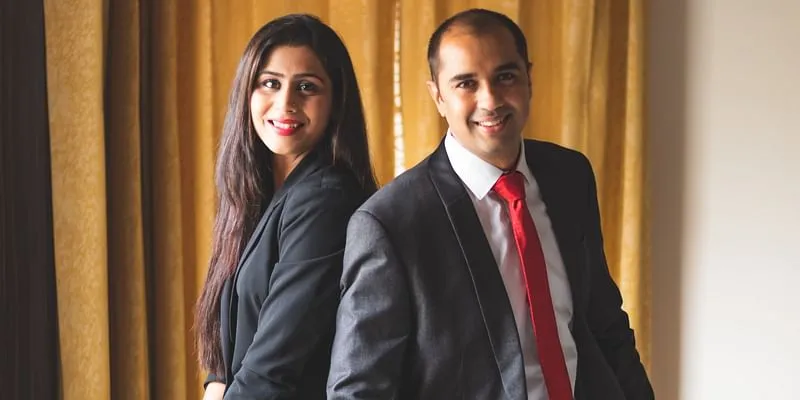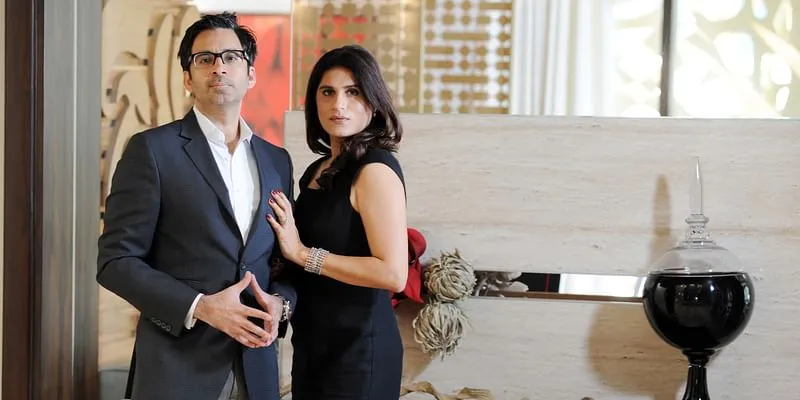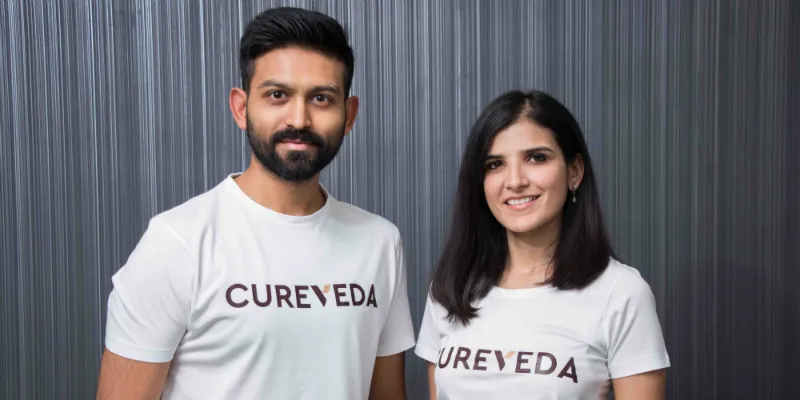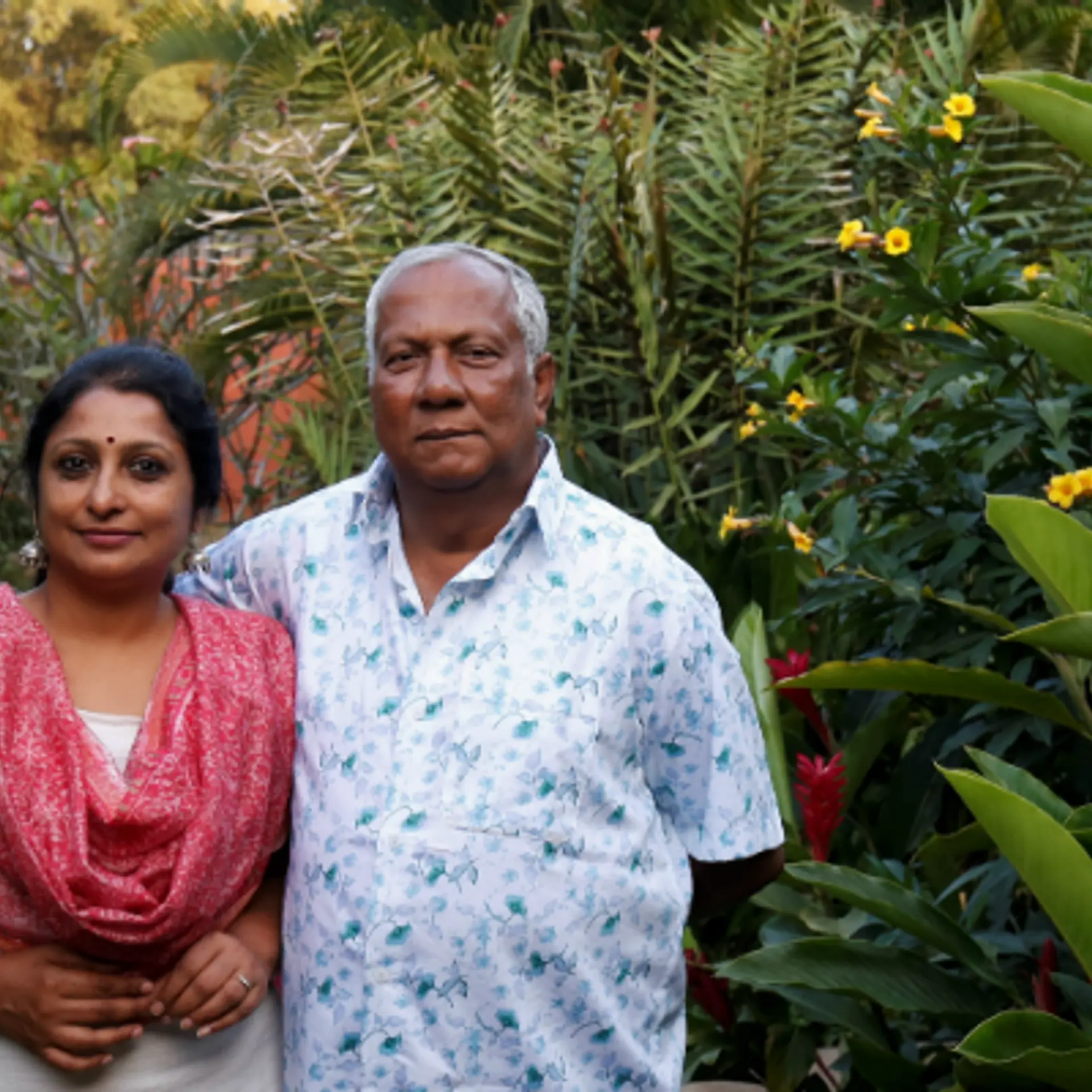Valentine’s Day: 5 Indian businesses started by entrepreneur couples
Familiarity with each other’s personality traits and working styles can be a powerful tool in business. This Valentine’s Day, take a look at emerging Indian SMBs and popular brands started by entrepreneur couples.
They say finding the right co-founder can be a daunting task. But what if you could find your perfect cofounder in your significant other?
After all, a romantic relationship and a business relationship have several commonalities — they both rely on chemistry, trust, and communication. And familiarity with each other’s personality traits and working styles can be a powerful tool in business.
This Valentine’s Day, we take a look at five emerging Indian SMBs and popular brands that were started by entrepreneur couples.
The Purchase House

Rushikesh Bhandari and Kanchan Bhandari, Cofounders, The Purchase House
As many business owners suffered huge losses amid the pandemic due to stacked inventory that prevented them from re-investing in their business.
Seeing this gap in the market, Rushikesh Bhandari (33) and Kanchan Bhandari (31) decided to start a portal where companies can meet substantial buyers to liquidate their stock at a valuable price.
Rushikesh says, “My wife Kanchan and I were into industrial goods trading in 2013. We realised that surplus and non-moving stock is a common pain-point that can adversely impact the financial health of the MSMEs and even large corporations.”
The couple decided to take a chance and founded in 2017 in Nashik. In a span of four years, it is recording a GMV of Rs 76 crore.
Read the full story here.
Mamaearth

Ghazal Alagh and Varun Alagh, Co-founders, Mamaearth
In 2016, Ghazal Alagh and her husband Varun Alagh were expecting their baby and wanted to ensure they could do everything to keep their child safe. Disappointed by the limited to no chemical-free products in the market, the duo decided to launch , a brand by a parent for other parents.
Based in Gurugram, Mamaearth uses the best available ingredients – natural, plant-based or manmade — that are both certified safe as well as effective. The ingredients are procured from the best sources around the world, which are ISO, GMP, and Non-GMO compliant, Varun adds.
Mamaearth is Asia’s first brand to get the MadeSafe certification for its toxin-free products. The company is aiming at reducing parental stress and is continually improving and innovating to make the world a safer place for both the babies and their parents.
The brand crossed the Rs 100 crore turnover mark in just four years.
Read the full story here.
Design Cafe

Founders of Design Cafe, Gita Ramanan and Shezaan Bhojwani
They started out as work partners but ended up becoming life partners. Shezaan Bhojani and Gita Ramanan, founders of , have known each other for almost 20 years, worked together for almost 15, and have been married for more than seven.
As experts in the design space and having designed over 500 projects together, they started Design Cafe in 2015 with their savings.
Design Cafe is an online home interior solutions provider and “not a traditional architecture and interior designing firm”. It provides end-to-end solutions for designing homes starting from designing, manufacturing some of the products, to the installation process.
Today, Design Cafe clocks a turnover of approximately Rs 120 crore every year. It has four stores spread across Bengaluru, Mumbai, and Hyderabad, and has more than 800 people in the workforce.
Read the full story here.
Essentia Environments

Hardesh and Monica Chawla
In 1993, Hardesh Chawla was running a financial services business in Moscow. In those years, he saw that some real estate structures, though dilapidated, were being sold at low prices. He started buying those buildings and renting them out.
Hardesh’s wife, Monica, had a knack for interior design and would add her inputs before renting out the buildings. When they started receiving positive feedback from their tenants about the design, they decided to translate this into a business opportunity.
The couple started Essentia Environments, a luxury interior design firm, in 1999.
The company is an end-to-end solutions provider for building luxury properties, offering services such as architecture, interior designing, manufacturing furniture, decor, etc.
The husband-wife duo returned to India in 2003 and set up their office in Gurugram. The company is looking to cross a turnover of Rs 100 crore this year.
Read the full story here.
Cureveda

Cureveda founders Siddhesh Sharma and Bhavna Anand Sharma
Entrepreneur Bhavna Anand Sharma was meeting stakeholders in the pharma industry when she saw an opportunity to address common ailments holistically. She wanted to create a brand that prioritised the use of standardised herbs, substantiated with clinical validation, to create a premium range of supplements.
In 2014, Bhavna and her husband Siddhesh Sharma launched a premium range of herbal, organic, and nutraceutical remedies under the brand Cureveda. The company’s range of dietary supplements are therapeutic products. Its popular products are the ones that address common ailments like diabetes, thyroid, and heart health problems.
“My husband is a part of the Baidyanath family, and this gave me a springboard into the world of herbs. It enabled me to set up a pharmaceutical company where I helped develop various therapeutic formulas and gave special impetus to getting them clinically tested,” Bhavna says.
Read the full story here.
Edited by Saheli Sen Gupta



.png?mode=crop&crop=faces&ar=16%3A9&format=auto&w=1920&q=75)



